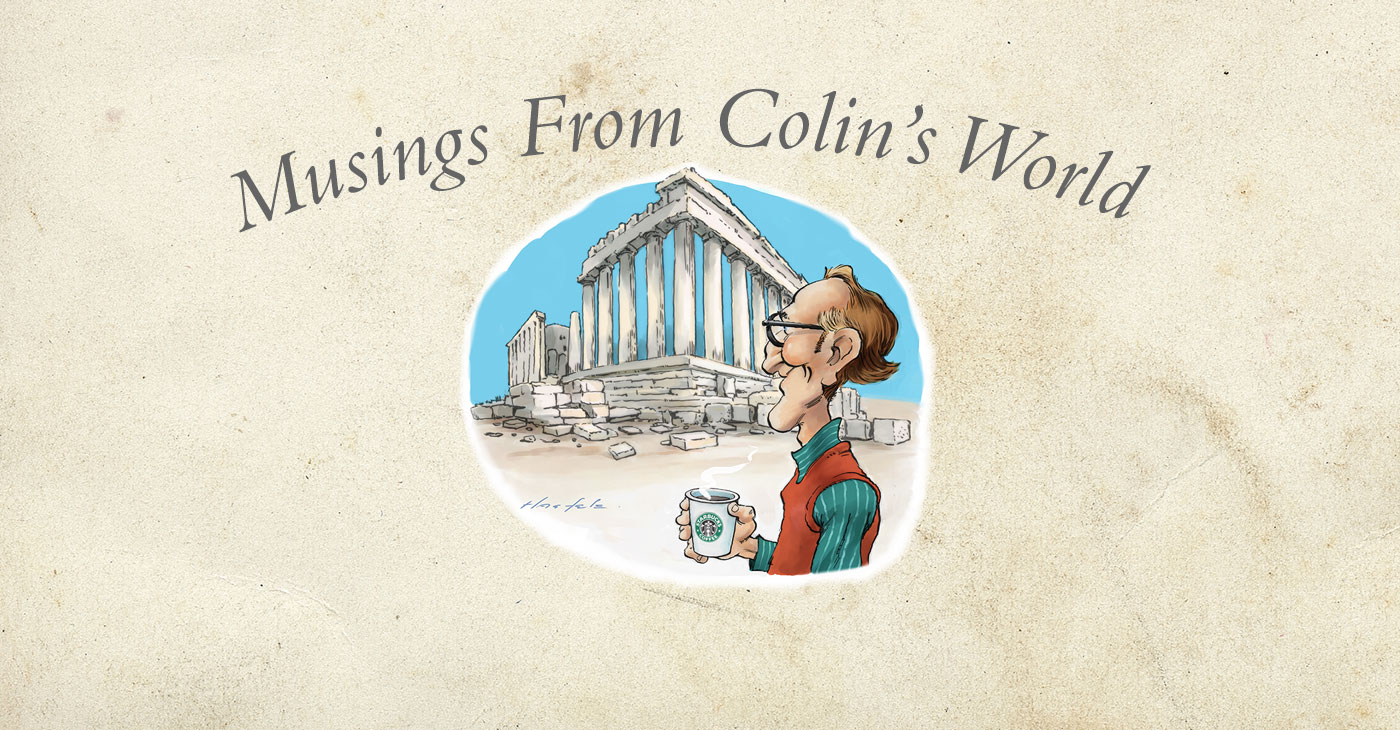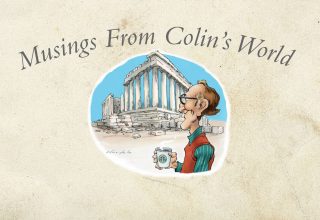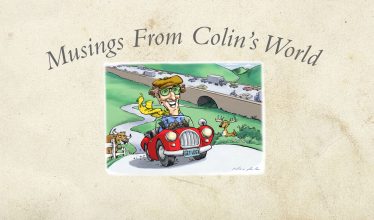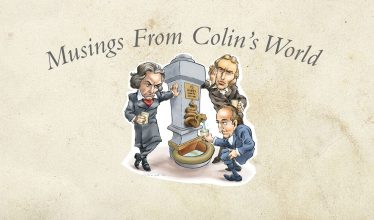I’m always intrigued by how my preconceptions of a place are shattered when I go there. It’s not necessarily that what I had thought was wrong. It’s that preconceptions focus only on a tiny slice of reality. When you go to a place, you get it all, all senses, everything happening at once all around you.
My preconceptions of Greece were dominated by my sense of its place in history as the foundation of Western Civilization. When I think of Greece, I think of Classical Greece, the Golden Age of Athens, the birth of democracy, artistic creation previously unimagined, the establishment of the foundations of mathematics, astronomy, medicine, philosophy, art, architecture, theater and practically everything that underlies what is called Western Civilization. Today that influence dominates Europe and the Americas, and to a significant degree permeates the whole world.
The Irresistible Culture
It is said that the Romans conquered Greece in 146 BC, but the conquest of all the independent city states took 120 more years. And, as my guide in Athens said, “Rome conquered Greece, but Greece conquered civilization.” Or, as the Roman poet Horace put it: “Captive Greece captured her rude conqueror.”
When Rome found itself in possession of Greece, it seemed to have found the best ideas about everything. Rome adopted them, and spread them across its vast empire. That was, in effect, the founding of Europe. Rome was invincible. But Greece was irresistible. “You resist armies and invasions,” said some wise person, “you can’t resist an idea.”
The Romans were great builders, and conquerors, which allowed them to spread culture widely. But the culture they disseminated was largely Greek.
Although these facts were always at the back of my mind, they only reflect a tiny sliver of my experience of Greece. Athens’s Golden Age was 400 years before the Christian era. The world has moved on considerably. The Athens of today was built on the ruins of Classical Greece. Athens includes all the layers of history of the last 2,500 years.
There’s Roman Athens, Byzantine Athens, even Neoclassical Athens. There’s modern Athens, and whatever historians will call the present period. I took in as much as I could of the layers from the Acropolis to Starbucks. But the heart of my experience was a seagoing adventure, a cruise among the Greek Islands on the Aegean Sea in a small sailing ship.
I felt that by sailing the Aegean I would experience the source of Greece even before the Golden Age. Greece was a seafaring nation, a peninsula with an archipelago of 3,000 islands. The sea is the natural foundation of Greek civilization.
Could it be that the Greeks excelled so brilliantly because they traveled widely and developed a worldly sophistication that put them ahead of their contemporaries? Who knows? But I loved getting out on the Aegean and letting my imagination go.
Out to Sea
When I saw the ship that was to be my home, I fell in love instantly. I have heard of ship love, but I had never before been so smitten.
There is something sublimely elegant about a sailing vessel. It’s no accident that we call them by the feminine pronoun. Somehow the heartbreaking beauty of a sailing vessel has a practical basis. It is a technology that enables you to travel great distances without need of any fuel besides the wind.
My ship carried about 150 people. It was lithe and maneuverable and could travel to places a big ship could not approach. On that ship I got back to the wind and stars, the elements that were at the source of the civilization that the world revered so much.
On Board
Once we embarked, I experienced the immortal Aegean Sea. It was a deep blue color dotted with white caps. The sea air felt like the richest air my lungs had ever received.
My first night on the ship I went to the top deck and did some stargazing. The moon had gone down and we were far from any artificial lights on the shore. The stars were extraordinarily bright and vivid. Someone pointed out Jupiter, and it was big and bright, the largest body in the sky. I wondered how much that kind of stargazing and contemplation of the heavens affected the early thinkers of Greece?
Our first islands were Mykonos and Delos, at the heart of the Cyclades archipelago. On Delos we visited the ruin of a city from 1400 BC, now populated by quail and lizards that pop out and look at you, then scamper away.
We climbed up the mountainside, where you could see the ruins below laid out like a map. There were thornbushes creeping out onto the paths, thorny shrubs in rounded bunches and thistles, with spiky flowers.
From the Sanctuary of Zeus, the high point on the island, we could see a great panorama. It felt like the top of the world. It was morning and the sun was in the eastern portion of the sky lighting up the sea in blindingly bright silver, with a moving, sparkling pattern on the surface. At the very top was a small obelisk about five feet high marking the highest point, said to be where Apollo was born.
We visited Kusadasi on mainland Turkey, bound for the abandoned Greco-Roman city of Ephesus, which dates back to 1500 BC. You can still walk its ancient streets and see the Odeon, the Temple of Hadrian, Trajan’s Fountain and the Arcadian Way.
Santorini
The most striking of all the islands we visited was Santorini. Some believe it was the origin of the story of the Sunken City of Atlantis. Santorini was a volcano, and when it erupted in 1500 BC, the center collapsed into the sea. The Minoan civilization was blasted away.
Early in the morning, we sailed into an enchanted group of islands with craggy peaks shrouded in fog. It was shaped like a crescent moon with a star in the middle.
Little houses were perched atop nearly-vertical cliffs, roads zig-zagged up the mountainside, and cable cars made round trips to the clifftops. Volcanic rock in patterns of flowing lava, now petrified, jutting cliffs and layers of variously colored strata, all told tales of volcanic cataclysm. And now, at the site of the disaster, little sparkling white houses with blue domes, trees, shrubs and grasses growing out of the craggy landscape. We rode donkeys up to the top, had coffee and bought some of the famous local dessert wine.
I can’t remember on which island one of my memories took place, but it left a strong impression. I was sitting at a café on the beach watching people go by. It had a peaceful, family feeling with women, babies and dogs, and everyone seemed to simply be enjoying the paradisiacal environment.
As I sat enjoying a cappuccino I saw a spot on the horizon, which grew larger until I could see it was a mega cruise ship. It continued to loom larger and by the time it reached the docking area it seemed colossal. It was biggest thing in sight and it covered an appreciable part of the horizon.
In slow motion a crowd gathered on top and began to file down the ramp and onto the waterfront. There must have been thousands moving onto the beachfront area. It demonstrated clearly to me the difference between a small ship and a mega cruise line.
I was more sure than ever that I had made the right decision.
Your humble reporter,
Colin Treadwell



